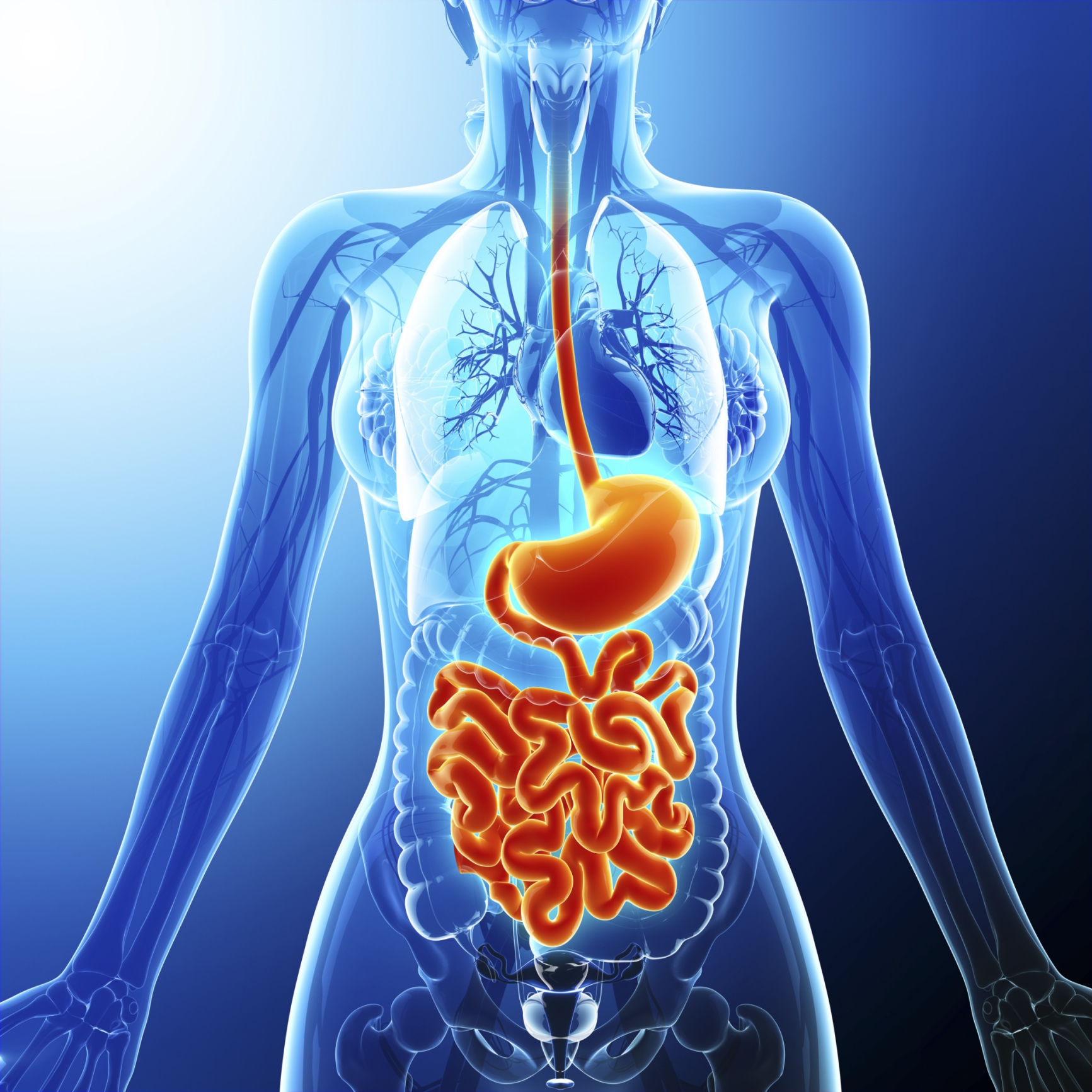The stomach and colon are integral parts of the digestive system. They are responsible for breaking down food, absorbing nutrients, and eliminating waste. However, issues with these organs can lead to discomfort, pain, and disruption of daily life.
To maintain a healthy lifestyle, it is essential to prevent stomach and colon diseases. While modern medicine offers numerous treatments, there’s growing interest in herbal dietary supplements as a preventive measure.
Let’s Explore Together…………
Common Stomach Issues:

Acid Reflux (GERD)
- Causes: Weakening of the lower esophageal sphincter (LES), which allows stomach acid to flow back into the esophagus.
- Symptoms: Heartburn, regurgitation, chest pain, difficulty swallowing.
- Remedies: Dietary changes (avoiding acidic and spicy foods), medications (antacids, proton pump inhibitors), lifestyle modifications (elevating the head during sleep, weight loss).
Peptic Ulcers

- Causes: Infection with Helicobacter pylori bacteria, prolonged use of nonsteroidal anti-inflammatory drugs (NSAIDs), excessive alcohol consumption.
- Symptoms: Abdominal pain, bloating, nausea, vomiting, loss of appetite.
- Remedies: Antibiotics (for H. pylori infection), acid-reducing medications, avoiding NSAIDs and alcohol, stress management.

Gastritis
- Causes: Inflammation of the stomach lining due to infection, excessive alcohol consumption, stress, or autoimmune disorders.
- Symptoms: Abdominal pain, nausea, vomiting, bloating, indigestion.
- Remedies: Antacids, proton pump inhibitors, avoiding irritating foods, reducing stress through relaxation techniques.
Common Colon Issues:
Irritable Bowel Syndrome (IBS)

- Causes: The exact cause is unknown, but thought to involve abnormalities in the gastrointestinal nervous system, muscle contractions, and inflammation.
- Symptoms: Abdominal pain, bloating, gas, diarrhea, or constipation (or alternating between the two).
- Remedies: Dietary changes (high-fiber diet, avoiding trigger foods), stress management, medications (antispasmodics, laxatives, antidepressants).

Inflammatory Bowel Disease (IBD)
- Causes: Autoimmune response causing chronic inflammation of the digestive tract.
- Types: Crohn’s disease, ulcerative colitis.
- Symptoms: Abdominal pain, diarrhea (often bloody), weight loss, fatigue.
- Remedies: Anti-inflammatory medications, immune system suppressors, biologic therapies, dietary adjustments (low-residue diet during flare-ups).
Constipation

- Causes: Lack of fiber in the diet, dehydration, certain medications, ignoring the urge to defecate.
- Symptoms: Difficulty passing stools, infrequent bowel movements, abdominal discomfort.
- Remedies: Increasing fiber intake (fruits, vegetables, whole grains), staying hydrated, regular exercise, over-the-counter laxatives (occasionally).
General Remedies and Lifestyle Changes:
- Dietary Modifications:
- Incorporate fiber-rich foods (fruits, vegetables, whole grains).
- Avoid trigger foods that worsen symptoms (e.g., spicy, fatty, or acidic foods).
- Stay hydrated by drinking plenty of water throughout the day.
- Stress Management:
- Practice relaxation techniques such as deep breathing, meditation, or yoga.
- Ensure an adequate amount of sleep each night to support overall well-being.
- Regular Exercise:
- Engage in physical activity to promote healthy digestion and bowel movements.
- Aim for at least 30 minutes of moderate exercise most days of the week.
- Medication Management:
- Follow prescribed medications diligently and discuss any concerns with a healthcare professional.
- Avoid overuse of medications such as NSAIDs, which can irritate the stomach lining.
- Seek Medical Advice:
- Consult a healthcare provider if symptoms persist, worsen, or if new symptoms develop.
- Regular screenings and check-ups are essential, especially for individuals with a family history of gastrointestinal disorders.
Herbal Powerhouses for Stomach and Colon Health:

Moringa:
- Benefits:
- Moringa, also known as the “miracle tree,” is rich in antioxidants, vitamins, and minerals.
- It possesses potent anti-inflammatory properties, making it beneficial for soothing digestive inflammation and promoting gut health.
- Moringa also contains fiber, which aids in digestion and supports regular bowel movements.

Turmeric:
- Benefits:
- Turmeric contains curcumin, a compound with powerful anti-inflammatory and antioxidant properties.
- It can help alleviate symptoms of inflammatory bowel diseases like Crohn’s disease and ulcerative colitis.
- Turmeric also aids in digestion by stimulating bile production and promoting gut motility.

Ginger:
- Benefits:
- Ginger is renowned for its digestive benefits, including relieving nausea, bloating, and indigestion.
- It contains gingerol, a bioactive compound with anti-inflammatory and antimicrobial properties.
- Ginger may also help prevent stomach ulcers by inhibiting the growth of Helicobacter pylori bacteria.

Peppermint:
- Benefits:
- Peppermint is commonly used to alleviate digestive discomfort, including gas, bloating, and abdominal pain.
- It contains menthol, which relaxes the muscles of the gastrointestinal tract, promoting smoother digestion.
- Peppermint oil capsules have been shown to be effective in managing symptoms of irritable bowel syndrome (IBS).

Aloe Vera:
- Benefits:
- Aloe vera contains compounds like aloin and anthraquinones, which possess laxative effects, aiding in relieving constipation.
- It also has anti-inflammatory properties and may help soothe digestive inflammation associated with conditions like gastritis and inflammatory bowel disease (IBD).
Benefits of Herbal Dietary Supplements for Stomach and Colon Health:
- Anti-inflammatory Properties:
- Many herbs possess potent anti-inflammatory properties, which can help reduce inflammation in the stomach and colon.
- Chronic inflammation is linked to conditions like gastritis, ulcerative colitis, and Crohn’s disease.
- Herbs like turmeric, ginger, and licorice root have demonstrated anti-inflammatory effects, potentially mitigating inflammation-related diseases.
- Antioxidant Effects:
- Oxidative stress contributes to the development of various gastrointestinal disorders.
- Herbal supplements rich in antioxidants, such as green tea extract, grape seed extract, and milk thistle, can help neutralize free radicals and protect against cellular damage in the stomach and colon.
- Promoting Digestive Health:
- Certain herbs have digestive properties that aid in proper digestion and alleviate digestive discomfort.
- For example, peppermint and fennel are known for their carminative properties, which help reduce gas and bloating.
- Additionally, herbs like slippery elm and marshmallow root may soothe irritated mucous membranes in the gastrointestinal tract.
- Balancing Gut Microbiota:
- The gut microbiota plays a crucial role in maintaining gastrointestinal health.
- Herbal supplements like probiotics, which contain beneficial bacteria strains, can help restore and maintain a healthy balance of gut flora.
- Prebiotic-rich herbs like chicory root and dandelion greens serve as food for probiotics, supporting their growth and activity in the gut.
- Supporting Immune Function:
- A robust immune system is essential for defending against pathogens and maintaining gut health.
- Herbs like echinacea, astragalus, and elderberry possess immune-modulating properties that can strengthen the body’s natural defense mechanisms, potentially reducing the risk of infections and immune-related gastrointestinal disorders.
Incorporating Herbal Dietary Supplements into Your Routine:
- Consult with a Healthcare Professional:
- Before adding herbal supplements to your regimen, consult with a healthcare provider, especially if you have pre-existing medical conditions or are taking medications.
- They can provide personalized recommendations based on your health status and goals.
- Choose High-Quality Supplements:
- Opt for herbal dietary supplements from reputable brands that adhere to strict quality control standards.
- Look for standardized extracts and third-party certifications to ensure purity and potency.
- Follow Recommended Dosages:
- Adhere to recommended dosages provided on the supplement label or as directed by your healthcare provider.
- Excessive intake of herbal supplements can lead to adverse effects or interactions with medications.
- Integrate Holistic Approaches:
- Herbal supplements should complement a holistic approach to health, including a balanced diet, regular exercise, stress management, and adequate hydration.
- Emphasize whole foods rich in fiber, vitamins, and minerals to support overall well-being.
Conclusion
Herbal dietary supplements offer promising potential in preventing stomach and colon diseases by harnessing the therapeutic properties of natural plant compounds.
However, they should be viewed as part of a comprehensive approach to health that includes healthy lifestyle practices and regular medical check-ups. With proper guidance and adherence to recommended protocols, herbal supplements can be valuable allies in promoting gastrointestinal health and overall wellness.










